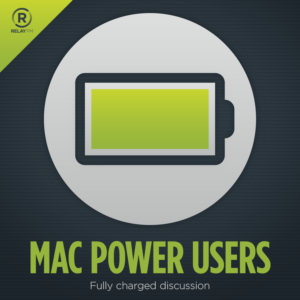Apple recently added transcripts to its Podcasts app. Several of you asked me to demonstrate how this feature works.
… This is a post for MacSparky Labs Members. Care to join? Or perhaps you need to sign in?
On Apple Getting AI Help
Bloomberg reports that Apple is in talks with Google (and possibly OpenAI) about a deal to run iPhone AI features through these third-party providers. It’s all sketchy at this point but it doesn’t seem out of the realm of possibility.
Capacity is one of Apple’s big problems in terms of AI. There are just so many iPhones out in the wild that if you add an AI feature requiring any cloud processing, they would have to have massive server capacity to keep up with it.
That’s just one more reason why the on-device model makes sense. However, if there was something they did want to do on the server or make available to their users to be done on a server, they’re going to need help. So the real question would be whether Apple makes that deal or just does AI processing on device.
Watch to Drafts Dictation Workflow
Here’s a useful new workflow that lets me press the Action button on my Apple Watch Ultra, speak a bit of text, and have a reliable transcription of that text… This is a post for the Early Access and Backstage MacSparky Labs Members. Care to join? Or perhaps you need to sign in?
Meetup Summary – March 2024
In your podcast feed today, you’ll find a short summary of the MacSparky Labs Meetup for March 2024… This is a post for MacSparky Labs Members. Care to join? Or perhaps you need to sign in?
Mac Power Users 736: Maintaining & Caring For Your Apple Hardware
Join Stephen and me on this episode of Mac Power Users as we offer advice on how to best care for Macs, iPhones, iPads, and more, from cleaning to battery management and beyond. Then, we reflect on recent news, including the new MacBook Air and the death of the company’s car project.
This episode of Mac Power Users is sponsored by:
The Lab Report for March 15, 2024
It’s time for the Lab Report, covering this week’s Apple news, rumors, and more… This is a post for MacSparky Labs Members. Care to join? Or perhaps you need to sign in?
M3 MacBook Air has Faster SSD Speeds
A bit of good news from iFixit on the teardown of the new M3 MacBook Air: they have now switched to two 128 GB storage modules. You may know that in the first two iterations of the Apple silicon MacBook Air, the base storage models were significantly slower in read-write speeds than the other models in the line because they only used one socket for storage, significantly cutting down the bandwidth. With the M3 model, the device gets SSD write speeds approximately 33% faster and read speeds approximately 82% faster.
There was a lot of hand-wringing when the M2 model didn’t make any changes to the SSD problem. It could just be that the manufacturing timeline didn’t give them enough time to fix it. I would argue that they should have caught this problem before releasing the first one. Regardless, I’m happy that Apple did respond, and now customers of the lower-end MacBook Air will get better SSD read and write speeds.
Focused 199: Repotting and Retirement, with Jim Eagar
Jim Eagar joins Mike and me on this episode of Focused to talk about how to navigate the four phases of retirement with meaning and purpose.
This episode of Focused is sponsored by:
- Vitally: A new era for customer success productivity. Get a free pair of AirPods Pro when you book a qualified meeting.
- Nom Nom: Healthy, fresh food for dogs formulated by top Board Certified Veterinary Nutritionists. Prepped in our kitchens with free delivery to your door. Get 50% off.
- Indeed: Join more than 3.5 million businesses worldwide using Indeed to hire great talent fast.
Who’s Responsible For Age Verification?
There seems to be a lot of finger-pointing going on about age verification between software and hardware developers. Facebook (and now Tinder) argue that it’s up to the hardware seller to verify a user’s age. (Ben Lovejoy covers this over at 9to5Mac.) In a lot of ways, that makes sense. When you register your iPhone, it should know how old you are. That could give Apple the ability to prevent underage children from downloading dangerous social media apps. Of course, it’s not illegal to have these apps for underage children in every jurisdiction.
Likewise, the seller of these dangerous apps that can harm children should take more responsibility than just finger-pointing at the device manufacturer. There are plenty of ways for Tinder and Facebook to know when they have an underage user. And they, too, should be taking steps to protect these children.
And of course, don’t forget the parents. Some parents will want to grant their children access, and others will want to lock the devices down. In my opinion, the only way we’re going to really solve this problem is if the parents, the hardware and the software people all get together on this. I absolutely would like to see Apple take a more active role in this, but I don’t think it’s solely responsible for the solution.
Local vs. Cloud Transcription Experiment
It’s experiment day in the MacSparky Labs. I wanted to find out if there’s a difference in quality between having your recordings transcribed in the cloud versus local Artificial Intelligence (AI) applications.… This is a post for the Early Access and Backstage MacSparky Labs Members. Care to join? Or perhaps you need to sign in?


